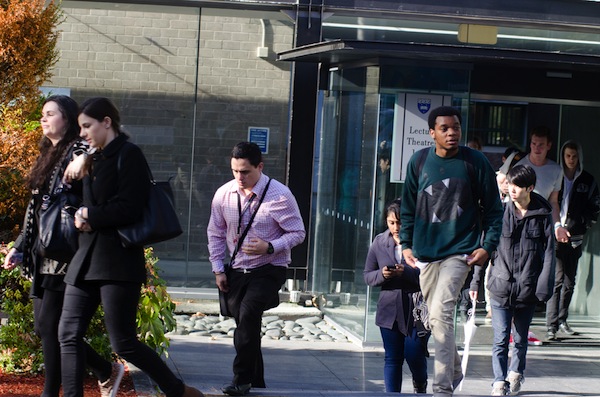Recent College Graduates are Less Engaged at Work, Gallup Reports

 ChameleonsEye / Shutterstock.com
ChameleonsEye / Shutterstock.com
Student debt may not be the only problem for millennials; they also must battle to stay upbeat about their jobs. According to a recent Gallup report, college educated employees appear less engaged in the workplace than those with a high school diploma or less.
About 66 percent of people who either did not graduate high school or only received a high school diploma are engaged at work, Gallup reports. That number drops to 54 percent for people who have some college education or a full degree.
The poll also found that college-educated employees who work in managerial or executive roles are far more engaged in work -- at 32 percent -- compared to those whose jobs are further down the career ladder. The lowest level of engagement was among transportation workers at 10 percent.
Gallup categorized employee engagement into three levels: engaged, not engaged, and actively disengaged.
Engaged employees are committed to company goals and are passionate about their work. Those who are not engaged find themselves “checked out” of the workday, merely going through the motions without energy for the job. Actively disengaged employees are generally unhappy with their work, often showing dissatisfaction and undermining engaged employees.
Gallup researchers are trying to figure out why college graduates do not feel fulfilled at their jobs despite pursuing higher levels of education. They have come to two different conclusions: expectations versus market demands.
Brandon Busteed, executive director of Gallup Education, posited that a lot of college graduates are “achieves” — people who have excelled both academically and socially in life. These types, Busteed noted, tend to stick to traditional notions of what success looks like. As a result, achievers follow the “college equals better life” theory which leads them to jobs that fit societal expectations versus what makes them feel valued.
The other, more quantifiable idea is there are either too few jobs for college grades or job placement doesn’t match the degrees conferred. Based on other surveys, researchers found that about 50 percent of recent college grads are unemployed and the ones who are employed work in positions that don’t require a college degree.
This explains the number of dissatisfied recent grads in the workplace as compared to other groups.
Busteed said:
“At the very least, we have a lot of college graduates getting jobs that don’t put their best talents and skills to work because of a big disconnect between degrees conferred and the jobs available today. At worst, we have a college system that is not helping students accomplish the most fundamental need -- getting them closer to what they do best.”
What does this mean for students in college preparing to move into the labor market? For one thing, higher education is still important. A Gallup/Lumina Foundation study found that 96 percent of people surveyed believed that earning a college degree was either “very important” or “somewhat important.”
The real issue is working with college students to assist them in pursuing degrees or coursework that aligns with their passions, but reflect the demands of the market. Doing so would relieve both students and universities from wasting money on needless classes that don’t align with career goals.
Universities like Clemson, Arizona State, and California State University have already established workforce initiatives to develop skilled talent that align with their state’s economic goals.
For many businesses, though, the need for active, high-skilled workers is imperative to compete globally. Speaking with the UW-Milwaukee Center for the Study of the Workplace, Rebekah Kowalski, director of Global Solutions for Right Management, put the crisis of in real terms: “We are facing a global systemic talent mismatch.”



